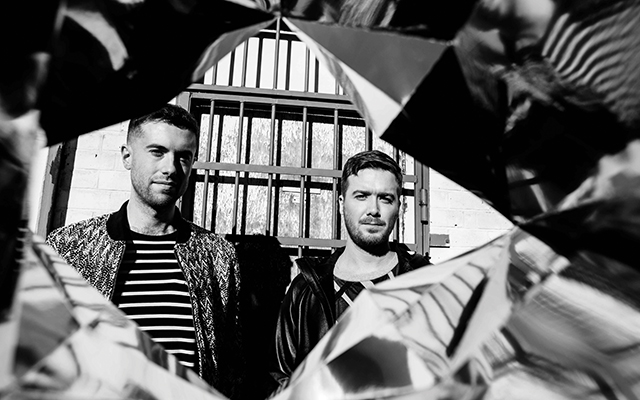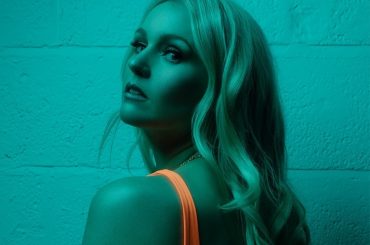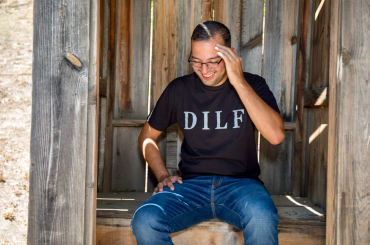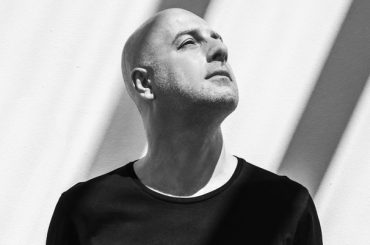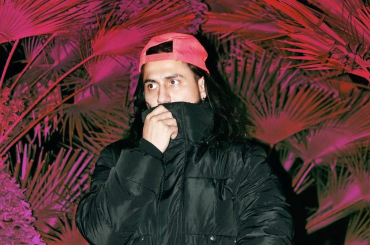DJ Times: You’ve had sessions in some of the best professional studios in the world. How do you like working in that setting versus your own studio?
Gibbon: Big studios are good for writing songs, but not so good for production. There are so many people around or coming in and out. When it comes to production, it’s best that we’re on our own, in our own space with speakers we know. Even if you’ve got the most amazing speakers in the world, if you don’t know them, then you won’t be able to produce good-sounding tracks. Our speakers at the studio aren’t the best or the most expensive, but because we’ve listened to them every day, we know exactly how they will sound and how our music will translate. That’s really important.
DJ Times: You’ve collaborated with such a wide range of vocalists. How do you get a good performance out of them?
Gibbon: We find we get better results when it is just us and them in the studio. It doesn’t always work out like that. With “Go All Night,” we wrote that with Kiesza and send it to Jennifer Hudson, but even then, we wrote it with Kiesza in the room. We have a basic microphone, an [sE Electronics] SE2200A. We did all the vocals on the first album and pretty much this one on that. We’ve recorded on microphones that are worth 10 times more, but we still prefer the cheap one.
DJ Times: What are your roles in the studio?
Robson-Scott: We both do everything. We generally start tracks together in the studio, especially if it’s with a vocalist. Recording and processing the vocals I do in Logic and put them back into Ableton, just to add a different dimension. Ableton is good for throwing down ideas quickly and getting stuff done fast when you’re on the road. It feels like you can do something without caring what the mix sounds like. In Logic, it feels more precise, which makes it more difficult and time-consuming.
DJ Times: Do you ever do things separately?
Robson-Scott: Yeah, on our laptops. We make weird little underground bangers that we will just play twice and never see it again. That kind of thing happens all the time, just a dub for a rave. You’ll make a tune called “Amnesia” on the way to Amnesia, once, and then you’ll forget about it.
DJ Times: What is the thought process behind the release schedule you have for the tracks on Kingdom?
Gibbon: Since we released the first album, everything’s changed, how music is charted, how people listen to music, especially in the U.K. Releasing like this is aimed more toward people who stream. Also releasing the tracks spread out gives each of them their own spotlight for a few weeks. There’s a wide range of stuff on this album. “Blue Parrot” is a techno-y track, there’s downtempo stuff, and then there are straight-up songs, which would be the singles. Our schedule is so crazy with touring, it’s cool to be putting the music out there as we go along, makes more sense than waiting forever.
DJ Times: How was songwriting approach for Kingdom different to what you did with Sirens?
Gibbon: On Sirens, we wrote each track like it was going to be a single. For Kingdom, because we know there are tracks that are not going to be singles, we can experiment with song structure and different sounds. A lot of our fans that are more fans of our DJ sets rather than our live show like the instrumental stuff that we make. And it’s fun for us to make that kind of music. Instead of worry purely about songwriting, we can play around with production techniques a bit more.
DJ Times: Did the fact that you knew you were going to have to play these songs live have any bearing on how your created them?
Gibbon: We find it helps when we’re making tracks to think how to play them live. Also, the other way around, we’ll put in tracks into the live show before we’ve finished them. We improvise and jam it out and if it sounds cool, we’ll make the record more like that. It’s good to have that feedback.
DJ Times: Your live show is very accomplished and always evolving. What is a new development the latest iteration?
Robson-Scott: We make those variations on the road. We want to keep it fresh and keep it rolling. We developed it with Andy Gangadeen, a music director. For the show now, I play the basslines with drumsticks on drum pads. It’s got nine pads, so enough samples to play the basslines for the whole track. Sometimes I have top-end stuff as well, like mallet hits or marimbas. I’ll map it so there are basslines on four and mallets on four on the same track. On “All Four Walls,” for instance, I’m playing the marimba hits, but not the bass. It’s a little more visually obvious, like hitting a xylophone with a stick. Basslines have been coming out of synthesizers for years. You’re just playing notes on a keyboard and it looks a bit silly, like you’re cheating or something. We wanted it to look more interesting.
DJ Times: Your live covers are fantastic.
Robson-Scott: All the covers we do in our shows are from performances we’ve done for the BBC Radio 1’s Live Lounge. When you do Live Lounge, you do your new single and a cover. If you do 1Xtra as well, you do a second cover specifically for them. We did “Hey Hey” by Dennis Ferrer for 1Xtra and we did Drake “One Dance” for Radio 1. We had to do Live Lounge on Tuesday and they told us about it on Sunday. We kind of know what we’re doing when it comes to making stuff like that. When you’re doing a cover, it’s not like it’s your own tune, so you’re not umming and arrring about things. I knew I wanted to do a U.K. funky rhythm with the drums before we even started it. I got into the studio a bit earlier than Kye and made a pattern, this drumbeat and sampled some old tune from the U.K. years ago and cut it all up. When Kye got there, he added some chords and a bassline and it was done. The main thing is rehearsing it with the singers because we had to work out how they were going to sing it over this new beat to make it faster and different. We get so much good feedback about the covers that we put them in the live show.
DJ Times: You seem to be regulars on the mainstream-pop circuit in the U.K.
Robson-Scott: Because we come from the underground, it’s not how we think of ourselves. I’m not saying the pop thing is bad at all. It’s amazing to be thought of like that, but we don’t want people in the scene to be like, “Oh, Gorgon City, they’re just going to play their hits and everyone is going to go crazy and then they’re just going to leave, they’re not part of our scene.” That’s not what we’re about.
DJ Times: So what is Gorgon City about?
Robson-Scott: We like making commercial-sounding stuff, but we also love doing the other side of it. We’re doing that on Kingdom by putting out “All Four Walls,” then “Blue Parrot,” then “Doubts,” then “Impaired Vision.” They show both sides of our dance-music personality. That’s important to us. We want to be able to play cool events like Crosstown Rebels’ Get Lost in Miami, a crazy acid-house party where everyone’s mental and every DJ is incredible. But we also want to set up with the band. We are getting this amazing opportunity to do both, which is rare.


